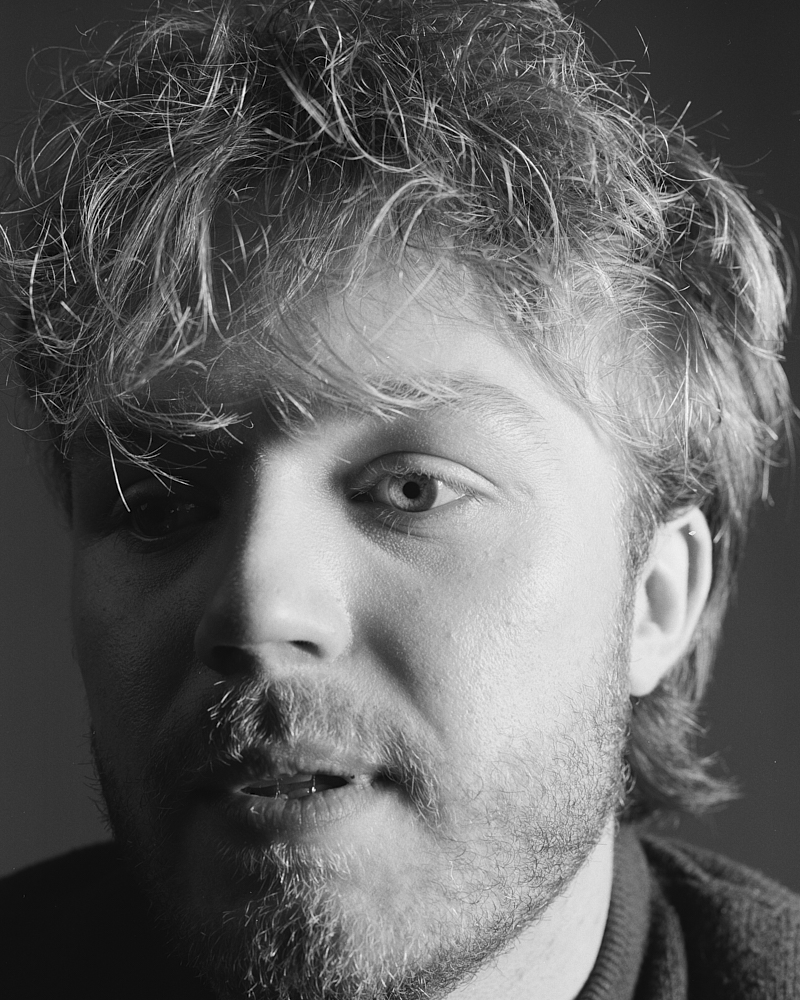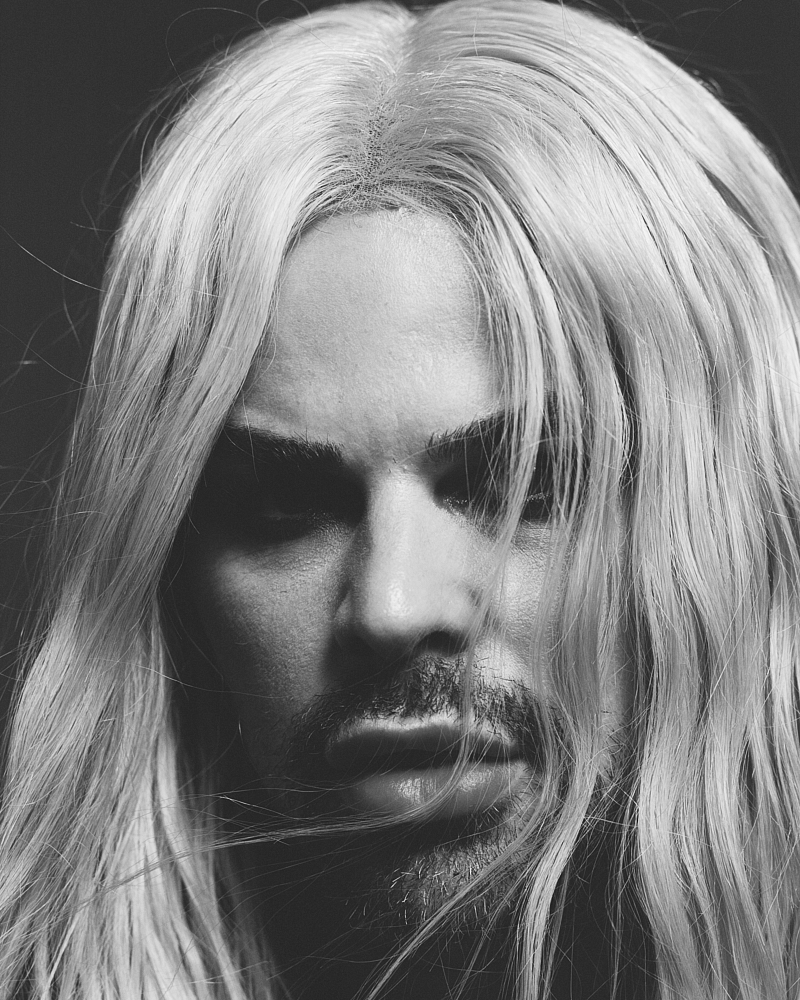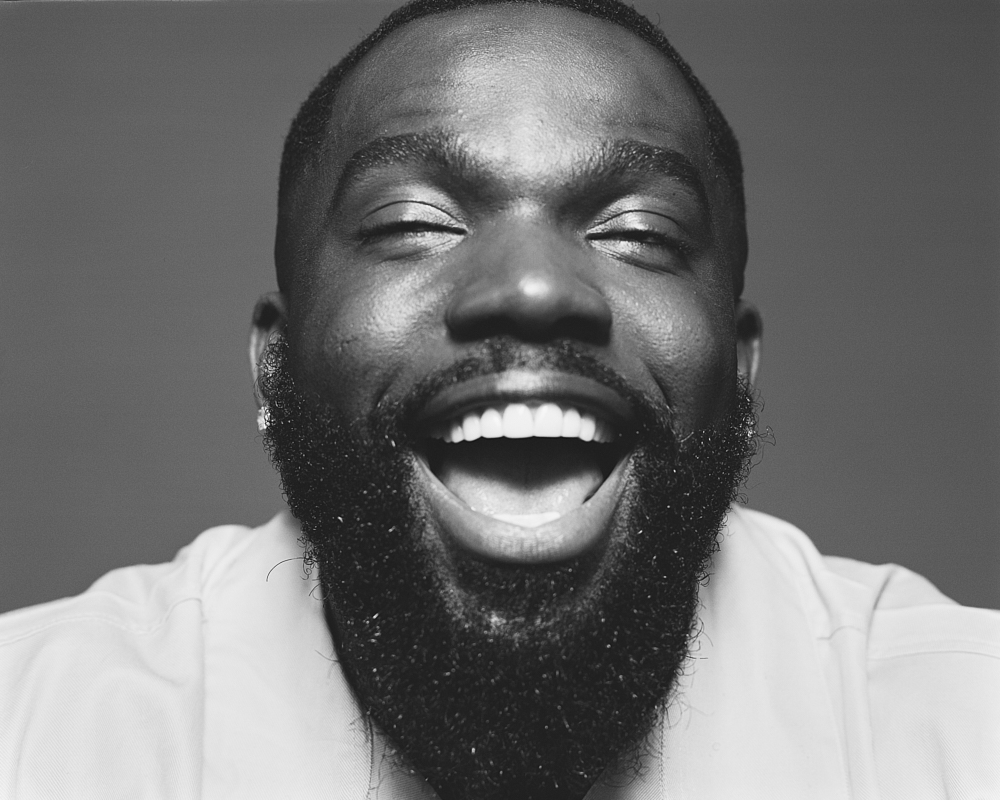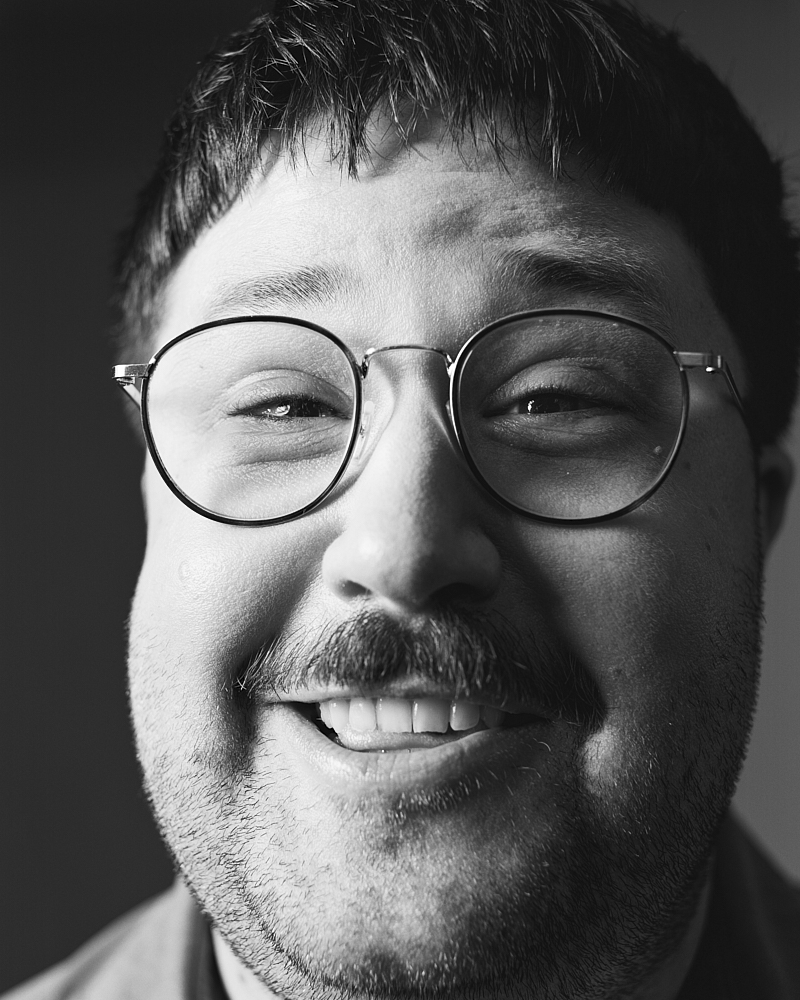A new genre of comedian is taking Britain by storm. Online, unconventional, and in demand, these comics have carved a sizable niche out on TikTok and Reels. But what’s life like when comments replace heckles? Jack Beaumont works the room with five of them.

If you found five on-the-up male comedians and put them in the same room twenty years ago, you might well have experienced loud, story-topping, competitive banter, and general sword-waving. Back then, the path to success was narrow and prescribed. You basically had to do stand-up, and a lot of it, often in unwelcoming or far away places. It could be brutal: stories of young comics having to literally fight for their money after a set are ten-a-penny. The Tunnel Club in Greenwich, south-east London, infamous for its heckling and hooliganism, was where the now mythical compère and proprietor Malcolm Hardee encouraged audiences to bottle acts he didn’t rate.
No such atmosphere here in east London in 2025 however, where comedians with an aggregated following of over two and a half million have gathered for a photoshoot. Instead, the mood is so relaxed, so genial, you might forget that these men have some of the most attention-heavy diets in the country, with accounts in their pockets doing digits most couldn’t fathom.
Of the five, two perform live comedy regularly, two never have, and one has done it once. It must be nice, surely, to be part of this new wave of hugely popular comedians, who do not actually have to do what is often considered the most terrifying thing ever, in order to make a living?
“Stand-up is still a very unique, important, and powerful art form, so it’s something I do want to try and master,” grins Ilford’s Abraham Bunga, who has accumulated over half a million followers across Instagram and TikTok since he started making online content in 2019. “But to answer your question: yes, I’m very thankful that I’m in a generation where you simply have an idea in your head and can make it a reality with your phone. I’m so thankful it exists, it’s given us a massive advantage.”
The geezer’s dentistry, skincare, and beard are all spectacular pieces of kit. He looks, in short, red carpet ready. And like a couple of his contemporaries in the room, that’s what’s in the cross hairs: a comedy role for film or TV. He can’t say too much at the minute, but he’s developing ideas for the latter, ideas which may or may not involve his four trademark comedy characters: North, East, South, and West London. Abraham parodies the subtly different types of road chaps you encounter in the capital, placing them in various everyday settings like the gym, before entering the frame as West London, who, among several stark contrasts to the others, has a campy, middle class voice. Does he feel pressure to keep putting out content for his many thousands of followers?
“There is pressure, but it’s more the pressure to stand out, because so many people are making content. That’s harder than the demand to keep creating. Observation and execution, that’s all it is.” And who’s the funniest person in the room then? “The photographer. He was hilarious, I can’t lie.”
Finlay Christie comes heavy with 474k YouTube subscribers – not to mention another 320k across Instagram and TikTok. He’s also well turned out, with a calm, thoughtful, and laser-focused presence. But unlike Abraham, he’s been doing stand-up since he was seven years old. “I’m primarily a stand-up. Videos are just fun. When I started on TikTok no one was doing it as a career move, I just liked the app and wanted to join in. Later it became a tool for promoting yourself.”

While Finlay is still open to a career in TV, he also speaks fluently about the industry’s drawbacks. “I don’t know if sitcoms are really the future of comedy,” he tells me. “I’ve worked on scripts for sitcoms in the past as a creator, and tried to get things made for TV.” The process, he says, is “absolutely brutal”, and often results in no pay. “I like the idea of people making gonzo-style content, long-form or short-form, for their own channels. I just want to make beautiful things.”
Having gone full-time as a comedian a couple of years ago, there is daylight between Finlay and the rest of this crop in terms reduced to career mileage, though that may come with the territory of infant debuts. Is his pedigree important to him, among those in the same era who don’t want or need to get up in front of live audiences?
“It depends what you want to do. I do the live thing because it’s what I enjoy the most. But no one should feel forced to do anything in life,” he chuckles. When asked who the funniest person in the room is, Finlay says Al Nash at first, then worries that’s unfair as it’s only Al’s work that he’s seen much of. He arrives at the decision to abstain, in a way that makes those within earshot laugh.
Best illustrating the diversity of approach that’s possible in this modern age is Sheffield’s Keelan Justice (over 400k followers between Instagram and TikTok), a salon owner who is unlikely to be doing stand-up any time soon. “My idea of hell on earth. A burning ball of flames. I am really sensitive, so if I did that and people weren’t laughing I’d just want to die. I don’t know where you go to learn to write jokes which you then repeat to people.”

Keelan’s videos are either him talking to-camera as himself – a striking combination of cheekbone, eye, and brow, making off-the-cuff observations or giving casual updates in a broad South Yorkshire accent – or short sketches performed in character as Dianne, his ferocious and even broader alter-ego, identifiable by a peroxide wig, attachable tits, and “massive stripper heels” which raise the already tall Keelan to well over seven foot. Does he think he’d even be making comedy if it wasn’t for smartphone technology? “Probably not, no,” he replies. “It’s given people like me who are funny in a different way a chance to find our audience. I’d love to have my own comedy series – like a sketch show, or a chat show – but with my ADHD it’s the actually getting down and doing the writing bit that I’d struggle with.”
Does Keelan envisage a future without the day job? “To be fair I could have left the salon a few years ago, but it keeps me in a routine and grounded, because I’ve still got the same clients I’ve had for twenty years who knew me before Dianne. They come in and tell me their colleagues can’t believe Dianne does their hair.” For Keelan, the funniest here today is “Tammie – he’s got a good vibe.”

Tammie, from Fazakerley, Liverpool, is a vox pop specialist. He’s most known for asking random members of the public where the best place to get a bit of chicken and a can of coke is, and boasts well over 700k followers on combined socials. He started his career after graduating in Business and Finance last year. “I told my parents I wanna do this, I’m gonna find a way to make it work. Thank God for them cos they’ve backed me so far.” As for the catchphrase ‘chicken and a can of coke’, he got that from a chance off-screen encounter with Jimmy Carr while a contestant on the new Blankety Blank. “Jimmy said he could do a Scouse accent and came out with that. A couple of months later a friend said I should just run with it. And yeah, it picked up.”
Like Abraham, Tammie is working on ideas away from social media and towards film, TV, and production. Although he’s never done stand-up, it’s an avenue he does want to explore, albeit for slightly masochistic reasons. “I want to know what it feels like when no one laughs at a joke which I think slaps,” he tells me. “Being able to get over that would give you next level confidence.” I ask him who the funniest person in the room is. He says Al.

Al Nash has the kind of funny yet approachable bones that make you want to ask if he’ll be your best friend. Having packed in the day job earlier this year, Al now earns full-time crust from his sketches, which generally spoof other online or IRL trends – This Person or That Person interviews (Lorde or Jar Jar Binks?), asking people on the street what their jobs are (Phone Thief), or doing a post-match interview at a funeral. How has he managed that then?

“I started a comedy society at university, and we went to Edinburgh a few times,” Nash says. “I only properly started making videos two years ago. Growing up on TV sketch comedy I’ve had to unlearn old behaviours as the rules are so different. You can’t have twenty seconds of dialogue setting the scene – on TikTok you have a few seconds and often the crux of the joke needs to be in the caption.” I wondered how delighted Nash is to be part of this generation, as an experienced live performer. Wouldn’t he rather have been born thirty years earlier, when there was more money and opportunity in TV comedy, offered more or less exclusively to those who had honed their craft on stage?
“Ooh. That’s a great question.”
Thanks.
“There’s a lot of snobbery, and I’ve been guilty of this in the past, where it’s like ‘Oh, you’re a TikTok comedian,’ but TikTok is essentially TV now. Ten years ago people would stop you and say you’re off the telly, now they say you’re off TikTok.” Like the others, Nash is feeling the benefits of this new style of fame, but is using it to aid more traditional comedic routes. “I’m bringing back the alternative comedy night I used to run next month,” he tells me. “It was such a slog selling tickets, but I’ve got a much bigger following now. If I say I’m doing a night, people will actually come.”
Funniest? Al pauses before conceding, in feathery Buckinghamshire sotto voce: “Finlay.”
Of course, it was unlikely that any of these social media titans would turn around and bemoan the age that’s given them all financial freedom, infinite audiences, and the choice to not get booed, heckled, or bottled. The search for resentment towards the exclusively digital comedians from the analogue-compatible was fruitless, perhaps because the resources they are technically in competition for are either too plentiful (online views) or too scarce (TV opportunities) for them to bother getting antsy about.
The other factor is, undeniably, diversity. Social media is far more democratic, and meritocratic, than TV or film has ever been, and it’s game on for anyone with a smartphone and an idea. The world of professional comedy has opened up to people who might otherwise have only ever been funny in the pub, in school, or at work. The strange outcome of this is that 30% of British schoolkids want to be YouTubers. But if we can train ourselves to sift through a bit of flotsam every now and then, Jobs, Gates, and the rest of the tech lords will have ultimately made us far richer in laughs. And do they get the credit for it? Do they bollocks.